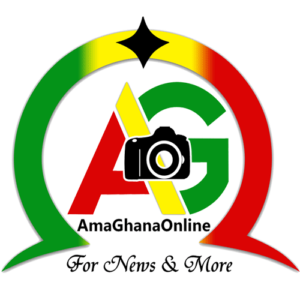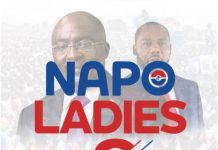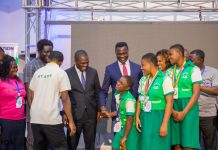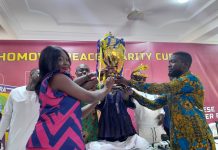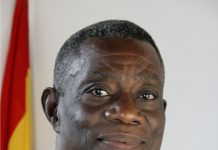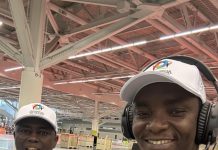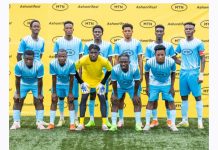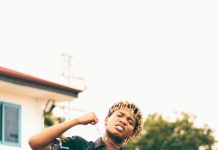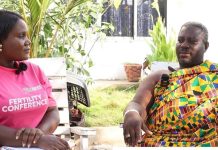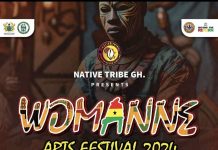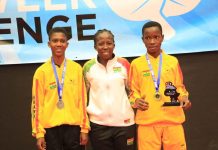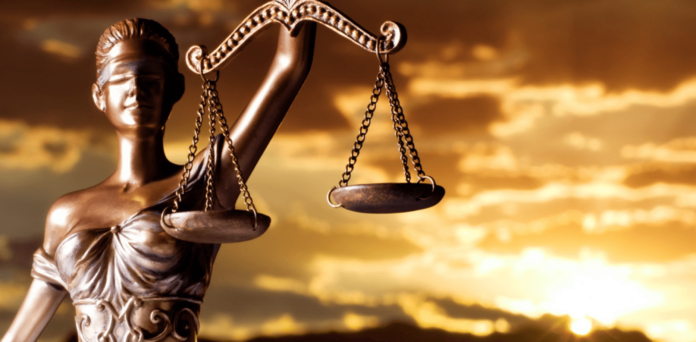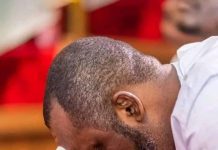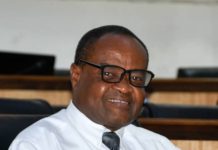Inevitably, the New Patriotic Party (NPP) must go to the polls to find a new leader in the not-too-distant future to replace His Excellency Nana Addo Danquah Akuffo Addo, as he embarks on his second and last term in office which may be the term in which his Legacy is perfected.
Article 13 of the Constitution of the Party (NPP) provides for the election of the Presidential Candidate of the NPP. The National Council of the Party is empowered to set the date and venue of any such election which, whilst the Party is in government, should be held earlier than 6th January 2024.
Until Ghana’s Constitution is amended, a person’s selection as a Presidential candidate for the NPP OR of the National Democratic Council (the NDC) is no mean achievement. It is increasingly looking like a candidate’s success at one of these 2 primaries, offers him an almost certain prospect of becoming the President of the Nation at one point or the other – longest, within 8 years of his selection by his party.
The import of this publication is to contend that no member of the NPP is ad-lib entitled to lead the party as if it is a birthright. Success must gravitate towards the one who is able to demonstrate the skills and the ability to unite the party, to change the mindset of their followers from one of ‘winner takes all’ to a merit-led deployment of human resource, inside and outside of parliament or a development orientated one, a predilection for compliance with law & to cherish integrity as against money led primaries and such likes.
Above all, the leader must demonstrate that he has sufficient National popularity, a formidable ability to campaign and whip up interest and support to enable him and the party to clinch victory at the 2024 Presidential and Parliamentary Elections and to govern the country from 2025 to 2028, in such a way as to also clinch a 2nd victory on 7th December 2028; to enable the party to leave a benevolent but lasting impact on Ghana our motherland.
According to Dr J.B. Danquah, “the Party’s policy is to liberate the energies of the people for the growth of a property-owning democracy in this Land, with right to Life, Freedom and Justice, as the principles to which the Government and Laws of the Land should be dedicated in order specifically to enrich Life, property and liberty of each and every specific citizen”.
As lofty as Danquah’s statement was which appears to have always guided NPP’s discussions on their constitution and manifestos, the words were originally uttered when a different National Constitution was in operation.
With such noble aspirations, it does not appear part of our purpose to want to muddy the waters with any tribalistic and factional motives. Factionalism is expressly barred under the New Patriotic Party’s National Constitution pursuant to Article 4(7)(1)(f) which specifies that the ‘creation of discord and faction within the party’ as a form of misconduct, punishable by fines, suspension and expulsion from the party, disqualification from holding any position or office of the party for a stated period.
Although obviously serious, the phenomenon of factionalism appears to rear its ugly head during internal competitions. No exempt circumstances are provided for under the party’s constitution, yet the prohibited conduct is heightened during competitions and the party does seem to be, in no hurry to crack the proverbial whip on any obvious culprits.
Factionalism often appears to be a useful and clever political tool, employed to elicit votes from delegates without their having to undertake any critical consideration or evaluation of a candidate perceived to be from the same faction or related to a leading party member who may himself appear to have arisen from a known faction; in other words, you are likely to be voted for in bloc by members of the faction you appear to represent.
However, we know not of any ideology or special skills ascribable to any known, current, or historical faction of the New Patriotic Party except, most probably, for sharing tribes, which rather exacerbates the mischief that the party and/or Nkrumah’s Avoidance of Discrimination Act (ADA) of 1957 had hoped to eliminate. After Ghana attained its independence on 6 March 1957, the Parliament of Ghana passed the ADA, 1957 (C.A. 38), which banned all parties and organizations that were confined to or identifiable to any racial, ethnic or religious groups with effect from 31st December 1957.
Factionalism and Tribalism in the NPP are in fact, almost the same phenomena, both of which should be completely exorcized and any attempt at categorizing a candidate as such, whether to solicit votes or to deprive a candidate of votes, by heightening the divisions in the party, should not be tolerated.
Again, if this appearance of obvious tribalism is not dealt with as expeditiously and expediently as possible, it may cause irreparable damage when least expected; a political party in Ghana, nearly 64 years after ADA 1957, must be able to choose its leaders without recourse to the tribe they hail from. It is curious that the NDC’s leading Presidential candidate cannot contest an election without fanning up tribalism one way or the other and/or by trying to tease his opponents or provoke them into choosing one candidate or the other, based on tribe.
The rationale for the prohibition against factionalism in the New Patriotic Party’s constitution, is palpably obvious. It is to ensure that the party stays as a single unit. Factionalism permits divisions in the party to fester and makes competitions unnecessarily more vitriolic than they ought to be. The corollary (natural consequence) of that, is that the wounds which open-up at elections/primaries become extremely difficult to heal.
Every now and then, a party leader is suspected of fanning factionalism and identifies himself clearly with a faction. The malevolence of political competition in Ghana is made worse by the Country’s National Constitution, which appears to invest excessive powers in the hands of the Presidency and hands over to the Presidency an extraordinary capacity for charity or for largess he or she may want to offer as an expression of gratitude when successful at National Elections; it is the source of the concept of ‘winner takes all’ believed to be a weakness in the National Constitution.
Lately, even the ambiguities in the National constitution appear to have allowed what should have been obvious encroachment on the powers of our independent institutions. The fault lines in the political system are exacerbated by the seemingly rather unabatedly corrupted primaries processes in both of our 2 major parties.
NPP still continues to represent an amalgam of Political parties which came together to oppose the Osagyefo Dr Kwame Nkrumah and his Convention People’s Party. Having been founded in 1947 as part of the United Gold Coast Convention (UGCC) by the famous Big Six and others, the UGCC split into the National Liberation Movement and others, when the Osagyefo Dr Kwame Nkrumah left the Convention with his admirers to form the Convention People’s Party.
Ten years later, when Nkrumah’s party – the CPP- had control over Government, he passed the Avoidance of Discrimination Act 1957. Its purported object was to ban all parties and organizations which were confined to or identifiable to any racial, ethnic, or religious groups as explained above but mischief was undoubtedly suspected. The parties were given till 31st December of that year to shut shops.
Accordingly, by that date, the under-mentioned parties came together as the United Party (U.P) to circumvent the suspected motive/mischief of the Avoidance of Discrimination Act 1957. Chief Simon Dombo, as the Leader of the Northern People’s Party, ceded leadership to Dr Kofi Abrefa Busia when their 2 parties merged, even though Chief Dombo’s Northern People’s Party had 15 seats in parliament as against the 12 from Dr K. A. Busia’s party; it is not known as to what if, any terms or conditions formed the bases of the agreement although it was clearly intended to circumvent the adverse impact of Nkrumah’s mischievous Discrimination edict, that may have rid the country of any serious political competition against himself and his Convention Peoples Party (CPP).
The United Party consisted of:
- the National Liberation Movement (NLM) led by Dr Kofi Abrefa Busia.
- The Northern People’s Party led by Chief S. Dombo and personalities like Alhaji Mumuni Bawumia.
- Anlo Youth Organisation
- Muslim Association Party
- Togoland Congress &
- The Ga Shifimokpee
Kwame Nkrumah’s Convention People’s Party was overthrown by an immensely popular coup, on 24th February 1966, led by Lt Col Kotoka, who handed over to Dr Busia’s Government, following an election in which the CPP had been barred from contesting. Dr Busia’s Progress Party carved out of or involving the U.P., governed Ghana from 1969 to 1972 but was overthrown by a military coup, led by Colonel Ignatius Kutu Acheampong on 13th January 1972. On 5th July 1978, after a palace coup in the Acheampong government, the Colonel’s deputy, Lt General FWK Akuffo took over the military Government known as the National Redemption Council (NRC) and changed its name from the NRC to the Supreme Military Council (SMC).
After a failed attempt at visiting a form of Union Government upon Ghana, Dr Hilla Liman’s Peoples National Party (the PNP), a regrouped CPP, took over the reins of Government from 12th December 1979, after an extremely competitive election in which Dr Liman, perceived as a novice in politics, beat a very divided U.P. tradition. It had split into the Popular Front (led by Mr Victor Owusu) and other splinter groups, including the United National Convention led by Mr William Ofori Atta (alias Paa Willie)
27 years ago, on July 24, 1992, after Rawlings’ coups of 1979 and 1981 and his rather protracted regime thereafter, the New Patriotic Party (NPP) proper was founded. It derived its origin and traditions from the United Party. The party however had a preponderance of the first two parties of Busia’s NLM & Chief Dombo’s Northern People’s Party. Chief Simon Diedong Dombo, Dr J. B. Danquah and Dr Kofi Abrefa Busia are popularly referred to as the original leaders of the 3 major strands of the political right in Ghana, being the leaders of the original amalgam of parties, although the NPP today is a much broader church than the U.P. represented in 1957.
With Rawlings’ NDC party entering the National body politic or discourse, the CPP split into several organised creeds over time, with many moving into the NDC, some into the NPP and the rest into other Nkrumaist parties.
The immediate concern which seemed to have mattered to the parties at the time the U.P. was formed from the two major minority parties was simply to survive the veiled threat from the Osagyefo Dr Kwame Nkrumah and to progress to win power one day, irrespective of who was in charge.
To reiterate, it is not known whether there were any clearly obvious or implied conditions of this agreement and even if there were, would a party be wise to risk breaching any Equality requirements or non-discrimination requirements that was aimed at then or today, by implementing a condition, nearly 63 years later? It is interesting to emphasize that Kwame Nkrumah’s edict aimed at the avoidance of tribal considerations in our political discourse.
It is especially ridiculous if we are to use any such agreements to select the leader of such a hugely diversified party as the NPP; any such condition will today be torn down as likely to offend so many other tribes and such likes who existed in different forms in 1957 and/or thereafter, unless the Party is seeking to suggest that more recent party members or those from say the CPP tradition should try to subsume themselves under one of the 3 main strands of the political right which existed in 1957. These old divisions will however foster Tribalism to an unacceptable degree that was probably not anticipated in 1957 or later.
The New Patriotic Party is reputed to be probably the most organised party in West Africa but sometimes her ideas on who should be leader, borders on the superstitious and/or the somewhat ridiculous. Let us study our history again.
I think Liman’s People’s National Party (PNP) did well in terms of compromise and tolerance to have allowed Imoru Egala to pick Dr Hilla Liman from the Popular Front, then Led by the formidable Victor Owusu (then an incarnation of the U.P.) against any necessity for him to be checked for capacity to control his party and lead.
They treated leadership as some sort of inheritance. Liman floundered so badly, as a man from our tradition and Corruption spread throughout the Country like wildfire. Today we still do not know whether Liman, as a matter of fact, connived with Rawlings and his coup makers of 1981, which precipitated in the longest revolution in West Africa. What was poignant was, Liman had a very weak control over the PNP.
NPP today should carefully weigh every important factor, including the popularity of a candidate in the country although effective leadership must be of over-arching paramouncy.
Today, NPP can really progress, if the question as to which of the 3 old factions of the party was entitled to lead was completely relegated into extinction. So how about those of the CPP tradition, some of whom have recently joined the NPP?
Jesus Christ of Nazareth was born in a manger, as the ‘step-son’ of a carpenter, he seemed to have been born outside of wedlock (colloquially, egregiously, or derogatorily referred to as an illegitimate son of Mary); he was to rise to lead the worldwide Christian faith within a couple of decades and has remained a Leader in spirit for over 2,000 years.
Credit: Kwame Ohene Asare, Esq.
